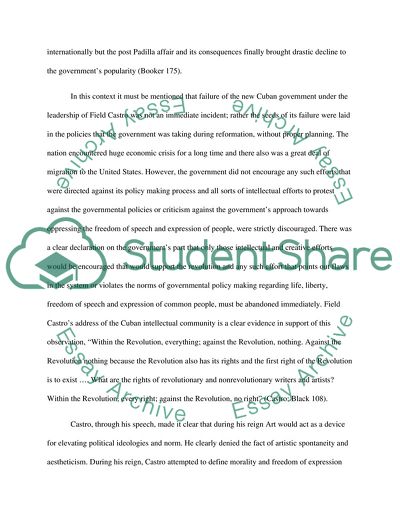Cite this document
(Cuban Post-Revolutionary Writing and Film-making Report Example | Topics and Well Written Essays - 1500 words, n.d.)
Cuban Post-Revolutionary Writing and Film-making Report Example | Topics and Well Written Essays - 1500 words. https://studentshare.org/history/1734255-cuban-post-revolutionary-writing-and-film-making
Cuban Post-Revolutionary Writing and Film-making Report Example | Topics and Well Written Essays - 1500 words. https://studentshare.org/history/1734255-cuban-post-revolutionary-writing-and-film-making
(Cuban Post-Revolutionary Writing and Film-Making Report Example | Topics and Well Written Essays - 1500 Words)
Cuban Post-Revolutionary Writing and Film-Making Report Example | Topics and Well Written Essays - 1500 Words. https://studentshare.org/history/1734255-cuban-post-revolutionary-writing-and-film-making.
Cuban Post-Revolutionary Writing and Film-Making Report Example | Topics and Well Written Essays - 1500 Words. https://studentshare.org/history/1734255-cuban-post-revolutionary-writing-and-film-making.
“Cuban Post-Revolutionary Writing and Film-Making Report Example | Topics and Well Written Essays - 1500 Words”. https://studentshare.org/history/1734255-cuban-post-revolutionary-writing-and-film-making.


